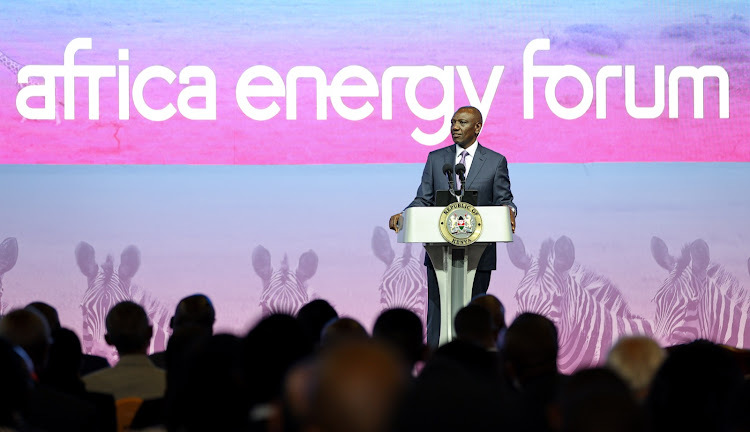What you need to know for your upcoming event to be compliant.
It’s a milestone in the drive towards a more inclusive society, particularly when it comes to how we design and deliver services and experiences. For the events industry, it marks a shift in both legal responsibilities and audience expectations. Accessibility can no longer be treated as a nice-to-have or an afterthought, it’s a fundamental part of doing business in the European Union.
What is the European Accessibility Act?
Coming into effect in June 2025, the European Accessibility Act (EAA) is a major step forward in creating a more inclusive digital and physical landscape across the EU. Designed to remove barriers for people with disabilities, the EAA sets out to ensure equal access to a wide range of everyday products and services, many of which are now essential to how we live, work and communicate.
Unlike previous legislation which largely focused on public sector websites, the EAA broadens its scope to include private sector services and technologies.
This includes mobile apps, computers, self-service kiosks, banking systems, streaming platforms, telecom services, e-commerce sites and more. In short, if your business offers digital or tech-driven services to EU customers, you’ll likely be affected.
Because the EAA is a directive, each EU Member State is responsible for incorporating it into national law. That means the route to compliance may vary slightly from country to country, but the goal is shared: to give everyone, regardless of ability, fair and equal access to the services and tools they need.
But I’m in the UK…
If you’re reading this from the UK, you might be wondering whether the new EAA legislation applies to you. While the UK is no longer part of the EU’s legal framework, UK businesses that sell products or services within the EU must still comply with the EAA, regardless of where they are based.
So, if you’re running events in Europe or have European stakeholders (speakers, sponsors, teams), it definitely applies. It’s also important to remember that the UK has its own Equality Act, which addresses accessibility requirements domestically.
There are some additional exceptions. Microbusinesses with fewer than 10 employees or under €2 million in annual turnover may be exempt if compliance is deemed an undue burden.
It’s more than just location
It’s also worth noting that the introduction of the EAA isn’t just about ticking a compliance box. This is a milestone, a legislative acknowledgement in expectations from individuals who have long been excluded from certain experiences. There are 135 million people in the EU living with disabilities* and in the UK, an estimated 16.1 million people, around 24 percent of the population, are considered disabled.
Disability can impact anyone, at any time in their life and not all disabilities are visible. Simply put, disabled people will already be attending your events, but now more than ever, the expectation is that your events and experiences will be mindfully catering to the needs of those attendees.
Lack of accessibility doesn’t just prevent people from taking part. It has a ripple effect, influencing how your event and company is perceived in terms of inclusivity and your wider ESG goals. If accessibility is one of your priorities as an event professional, aligning with the EAA is likely to benefit your events far beyond legal compliance.
Translating the EAA into events
So, what could the EAA mean in practice for your events? Here are just a few ways it could start to shape your planning and delivery.

Before the event
- Your event website must be accessible to people with a range of disabilities. This includes everything from clear navigation and screen reader compatibility to colour contrast and text alternatives for images.
- If you sell tickets or paid content, the entire purchasing process must be accessible. Individuals with disabilities should be able to buy tickets or book sessions online without barriers.
- If you share electronic content, such as downloadable brochures or e-books, these also need to be accessible. Written materials should be designed so that everyone can access and understand them.
On site at your event
- Any digital tools you provide for navigation or engagement, such as mobile apps for floorplans, matchmaking, or schedules, must be accessible.
- Registration and check-in systems must also be accessible, ensuring that all attendees can enter and interact with your event without difficulty.
***
We asked the TranslateAble team to share their real-life examples from recent events where the new legislation could improve the event experience.
- Incorporate text-to-speech features into registration systems
A recent experience helping an illiterate man buy a train ticket highlighted how inaccessible many systems are without staff support. Adding a text-to-speech option would help those who cannot read navigate systems independently. - Improve signage and increase on-the-ground support
One event attendee with dyslexia or neurodivergence shared that by the end of the day, she was so overwhelmed she couldn’t process signage or figure out how to exit. Clearer, more accessible signage and visible, approachable staff would make a big difference. - Provide theatre captions and accessible transcripts
Captions are helpful, but not always user-friendly. A dyslexic attendee noted difficulty following captions due to how they jump around on screen. Offering well-formatted transcripts alongside captions could support a wider range of needs. - Communicate clearly about available accessibility features
Many events provide sign language interpreters, but often fail to let attendees (or even staff) know. Communicating these services in advance and onsite is essential for inclusion.
***
Being on the front foot
Whilst the introduction of the EAA specifically addresses the needs of disabled individuals, there is also growing recognition within the events industry of the importance of wider inclusivity. Groups such as The Neu Project have been advocating for accessibility to go beyond physical and sensory impairments, encouraging organisers to consider how event environments, communication styles and programming can better support neurodivergent attendees.
From quiet rooms and flexible schedules to clear signage and inclusive language, there is increasing momentum to ensure that events are welcoming and accessible for everyone.
For go-to industry leaders on this topic and broader inclusivity at events, we highly recommend following EventWell and Diversity Alliance.
***
The TranslateAble team are here to help. We’re not accessibility or inclusivity experts, but language and communication we know. We already help deliver services for event professionals, venues and their businesses all over the world.
Drop us a line with details or check out our case studies to see how we’re already supporting events such as Comic Con and venues including Excel London and 10-11 Carlton House Terrace.



